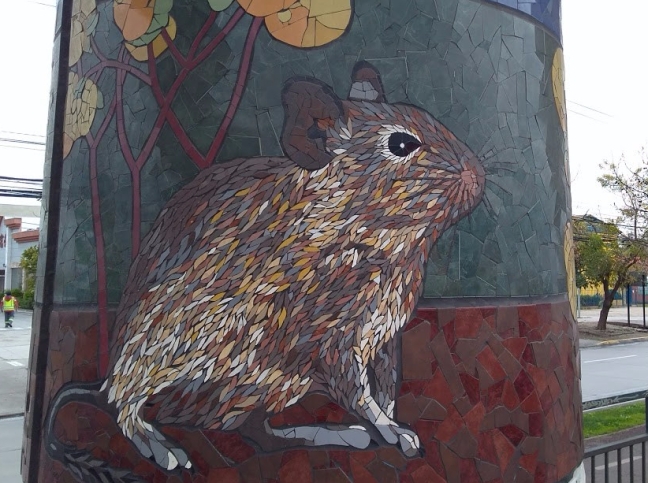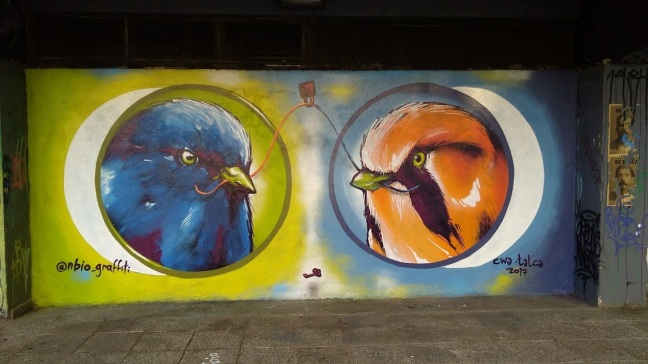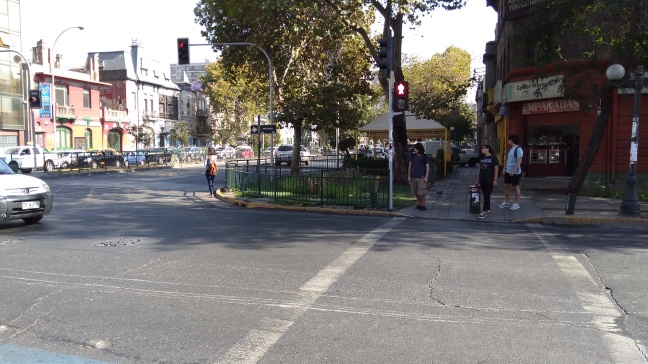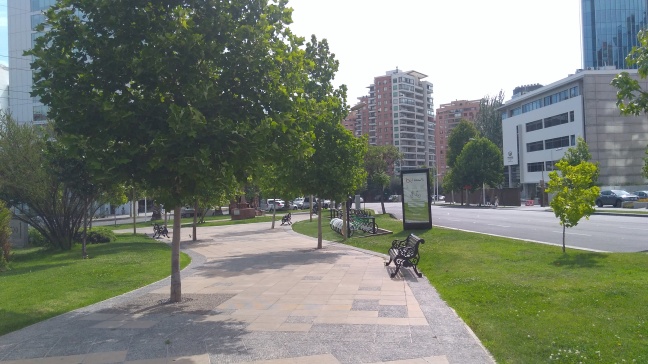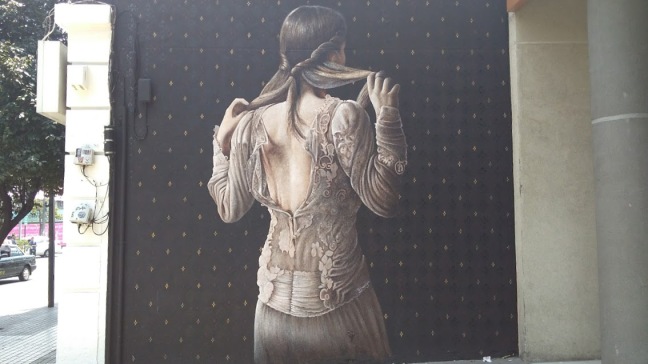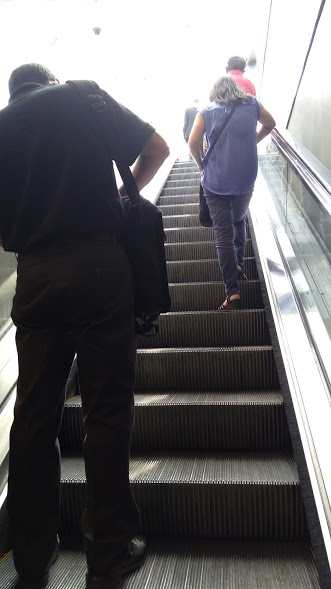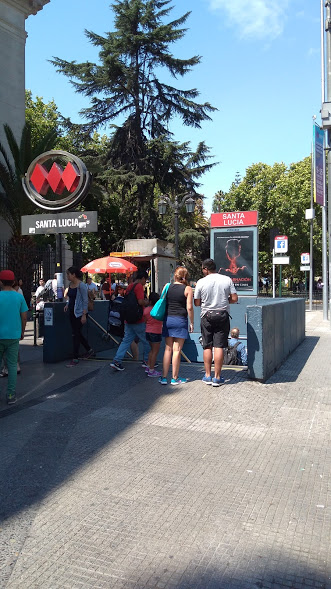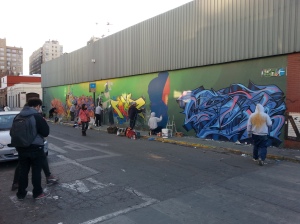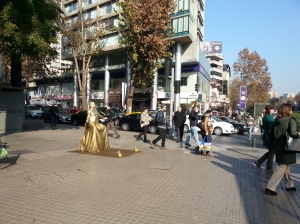I am not what you’d call a gambling man, but when I first laid eyes on that huckster in downtown Santiago, I couldn’t help but stay awhile and regard the scene. He’d set himself up in the shade of a side street that was just busy enough to attract a crowd. His table was an upturned cardboard box on which he was demonstrating his game. He had three solid disks – very much like coasters – and stuck underneath one of them was a sticker depicting flowers. That’s the sticker that the suckers had to find.
The game was Three Card Monte, and I’d heard enough about it to know it was a swindle, yet still I couldn’t pull my eyes away from this man in his fifties with his newsboy cap and his sagging jeans with yawning pockets.
His hands were constantly at work, flipping and manipulating the three silver disks in front of him. It seemed to require a lot of focus and thought, yet the man manipulated those coasters as if he was knitting while watching a movie. He’d juggle them around a bit and then lay all three face down, and the bystanders would toss crumpled notes onto whichever disk they believed held the sticker. Not just any notes either. These were 10- and 20- Luka bills, which was about five hundred rand a pop.
Without breaking stride, the huckster would reveal the disk holding the flowers, and collect up the money that was wrongly bet. There were often winners too, and the huckster would dispense the winnings without discussion.

The performance passed without drama. People won and lost without protest. Each time the disks settled it was like watching carved wooden figures in an elaborate German cuckoo clock striking the hour. People stepped forward and threw down their money. The huckster would redistribute funds as appropriate, and then they would step back to await the next round.
It was a funny thing, watching all this going on. You see, Dear Reader, I knew this was a con, and I tried to find the trick. Solid disks would be more difficult to maneuver and palm than playing cards, so I didn’t see how the huckster could be using slight of hand.
From the sidelines I was able to pick out the disk with the flowers every single time. I saw other folks throw money down on disks that were clearly blank, which was a result of their own poor eyesight, I presumed. Never once did I follow the flowers and get proved wrong. If that had been the case I would have turned around right then and walked away. Instead, I stood transfixed, playing the game by sight alone, without wagering a dime. It was a dangerous voice that crept into my mind and whispered I can win this, and it wouldn’t go away.
I supposed that it wasn’t a con. Perhaps it was just a skilled man with nimble fingers and hands fast enough to deceive most eyes. But not mine.
It occurred to me that watching without wagering was a lot easier than guessing while gambling. I thought that if I actually pulled out some money with the prospect of losing it, my adrenaline would surge and my focus would falter, so I held back. I became rational, and I began to walk on by, and as I did so I felt ethereal tendrils pulling me back, compelling me to try my luck.
I turned back to the action, and I saw a tall black fellow looming over the other spectators. He had been standing there a while, but now I noticed him for the first time. The disks settled, and with barely bridled confidence the black fellow leaned past an older lady and placed his well-worn smartphone onto the disk closest to where I was standing.
No, you fool! That’s the wrong disk! I thought.
Without breaking stride, the huckster revealed that disk to be blank, snatched up the smartphone and dropped it into his yawning back pocket before distributing money back to those who had won.
There was a collective expulsion of breath from the spectators, all of them sympathetic to the blow that the black fellow had suffered. I mention the colour of his skin only because it indicated that he was an immigrant, and being a stranger in a strange land is terrifying and isolating enough. But to lose your phone on top of that suddenly cuts you off from the loved ones you’ve left behind. I felt that this poor black fellow hadn’t just lost his phone, he’d also lost access to his community. Judging by the quality of his clothing I surmised that losing a smartphone was no minor nuisance. Losing something like that was surely a blow to him, and although the others were audibly sympathetic to his loss, they knew that the rules of the Chilean streets took precedence over the comfort of a foreigner.
The fellow was clearly embarrassed and devastated, and with a good-natured smile he beseeched the huckster to return his phone. He had to be good-natured, I suppose. Any sign of violence and the crowd would surely move to defend their compatriot over a foreigner. I was too far away to discern all that was said, but I did make out the phrase “This is how it works in Chile.”
No one was angry, they were just apologetically explaining to the fellow that rules is rules.
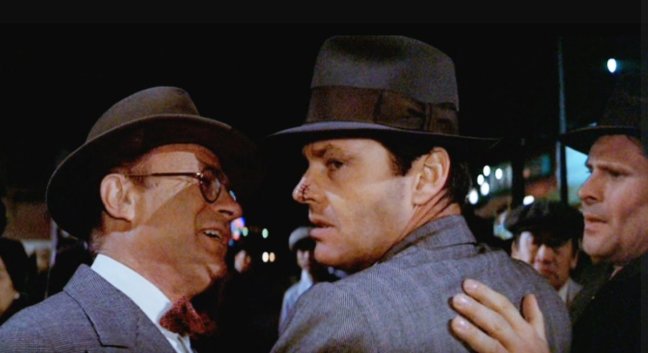
Even before the fellow had placed his phone down I had seen that he was wrong. So as I began walking to my next class I carried with me the confidence that my eyes were sharp, and the conviction that if I had played, I would have won. The ethereal tendrils began pulling at me again, urging me to turn back and bet. Trying to shake that urge was like trying to walk out of a nylon stocking – the further I walked, the stronger it pulled back at me. I won out in the end. I got out of there without losing a cent, but before I walked away completely I took one last look at the huckster and his game.
My final glimpse was of the huckster placing the smartphone back into the hands of the foreigner, and the black fellow leaning down to give him a hug as the bystanders applauded.
